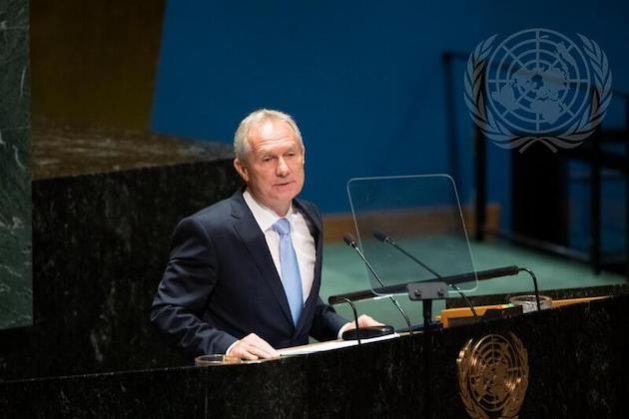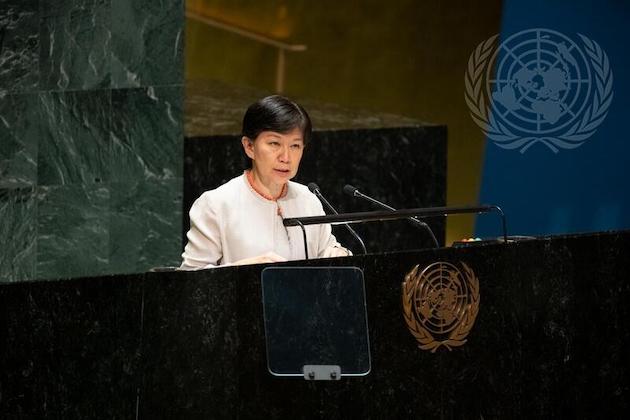General Assembly President Calls for a Human-Centered Approach to Disarmament

UNITED NATIONS, Aug 30 (IPS) - The President of the UN General Assembly, Csaba K?rösi, struggled to find a reason to celebrate the 13th International Day against Nuclear Tests. There have only been five nuclear tests, all conducted by North Korea since the day was declared in 2010. Still, K?rösi said he sees a world plagued by more distrust, geopolitical competition, and conflict than before.
“We are closer than at any other time in this century to global catastrophe, and yet we fail to see the terrifying trap that we have set for humanity by betting on nuclear weapons,” K?rösi told the General Assembly.
The Comprehensive Nuclear Test Ban Treaty would ban all nuclear tests and explosions. However, while it was adopted by a large majority of the General Assembly in 1996, the treaty is not yet in force. It must first be ratified by nine remaining countries with significant nuclear capabilities, including China, India, and the United States.
Secretary-General António Guterres called for these countries to ratify the treaty immediately to end the “destructive legacy” of nuclear war.

Meanwhile, nuclear stockpiles and capabilities are growing. Globally, a record 2.2 trillion dollars went to military spending last year. According to Izumi Nakamitsu, the high representative for disarmament affairs, there are 13,000 nuclear weapons stored around the world.
K?rösi expressed concern that nuclear testing threatens the “newest human right” to a clean, healthy, and sustainable environment. He called for a “human-centered approach to disarmament” aimed at preventing both human suffering and environmental destruction. As Nakamitsu pointed out, nuclear tests often occur in the world’s most fragile ecosystems.
In the last decade, international monitoring systems have helped increase transparency and promote a “powerful global norm against testing,” Robert Floyd, the executive secretary of the Comprehensive Nuclear-Test-Ban Treaty Organization, said. Civil society has continued to play an important role in advocating for nuclear non-proliferation since the first nuclear test in 1945 and first test ban treaty in 1965.
Still, danger persists. The president reminded member states that a limited nuclear war cannot exist: “It is time to put an end to the threat of our collective suicide.”
IPS UN Bureau Report
Follow @IPSNewsUNBureau
Follow IPS News UN Bureau on Instagram
© Inter Press Service (2023) — All Rights Reserved. Original source: Inter Press Service
 Global Issues
Global Issues